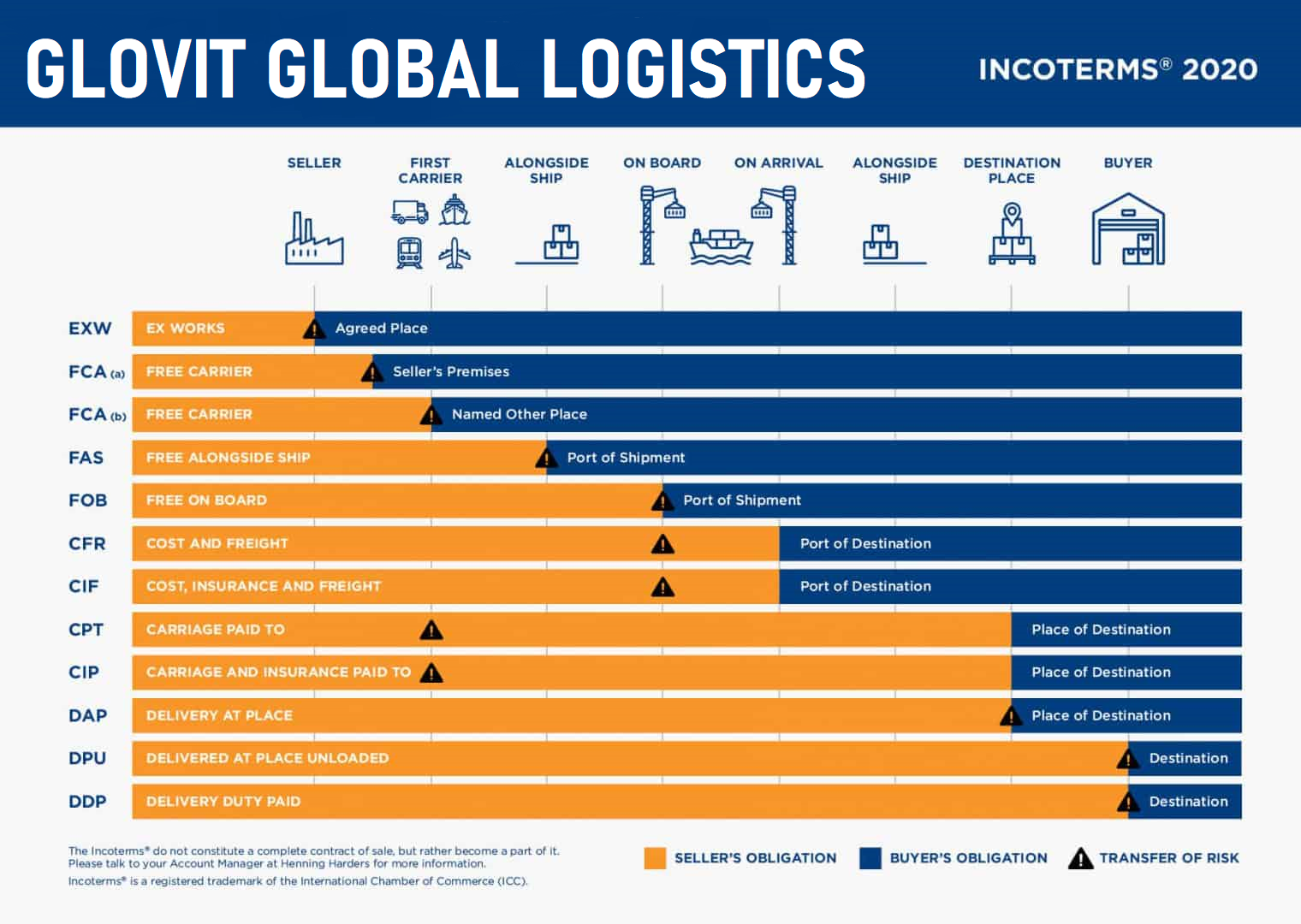
Incoterms (International Commercial Terms) are a set of commercial terms used in international commercial transactions. These terms are used to avoid disputes between the seller and the buyer regarding the delivery of goods, the passage of risks and the division of costs.
Incoterms 2020 is the latest update published by the International Chamber of Commerce (ICC) and came into effect from 1 January 2020. In this version, unlike previous versions, the term FCA has been significantly revised and the definitions for many terms have been updated.
Incoterms 2020 contains 11 different terms. These terms are defined according to the place of delivery of the goods, the passage of risks and the division of costs. Here are some of these terms:
• EXW (Ex Works): It means that the seller has the goods ready at their premises and the buyer must come to the premises to receive it. The seller bears the packaging and loading costs of the goods, but the transportation costs and risks belong to the buyer.
• FCA (Free Carrier): The seller delivers the goods to the carrier at the designated place (eg, at the factory or at the port). The seller bears the packaging and loading costs of the goods, but the transportation costs and risks belong to the buyer.
• CPT (Carriage Paid To): The seller delivers the goods to the carrier at the specified place and pays the transportation costs. However, the risks are with the buyer.
• DAP (Delivered At Place): The seller delivers the goods at the specified place and pays the transportation costs. The seller carries out the customs clearance of the goods, but the risks and costs belong to the buyer.
• DDP (Delivered Duty Paid): The seller delivers the goods at the specified place and pays the transportation costs. The seller completes the customs clearance of the goods and completes the customs clearance of the goods at the place determined by the buyer. All risks and costs belong to the seller.
• FAS (Free Alongside Ship): The seller delivers the goods at a docked location (eg at the port quay). The seller bears the packaging and loading costs of the goods, but the transportation costs and risks belong to the buyer.
• FOB (Free on Board): The seller loads the goods on the ship and after completing the loading, the risks pass to the buyer. The seller bears the shipping costs, but the transport costs belong to the buyer.
• CFR (Cost and Freight): The seller loads the goods on the ship and pays the transportation costs. The risks pass to the buyer after the seller loads it on the ship.
• CIF (Cost, Insurance and Freight): The seller loads the goods on the ship and pays the transportation costs. The seller also makes the transportation insurance. The risks pass to the buyer after the goods are loaded on the ship.
• DPU (Delivered at Place Unloaded): The seller delivers the goods to the specified place and pays the transportation costs. The seller carries out the customs clearance of the goods, but the risks and costs belong to the buyer.
• DDP (Delivered Duty Paid): As we mentioned above, the seller delivers the goods at the specified place and pays the transportation costs. The seller completes the customs clearance of the goods and completes the customs clearance of the goods at the place determined by the buyer. All risks and costs belong to the seller.
These terms are commonly used in international trade and are used to make agreements regarding the delivery and transportation of goods and the division of costs. These ensure that the seller and buyer understand exactly what their responsibilities are and can help resolve disputes in international trade.

